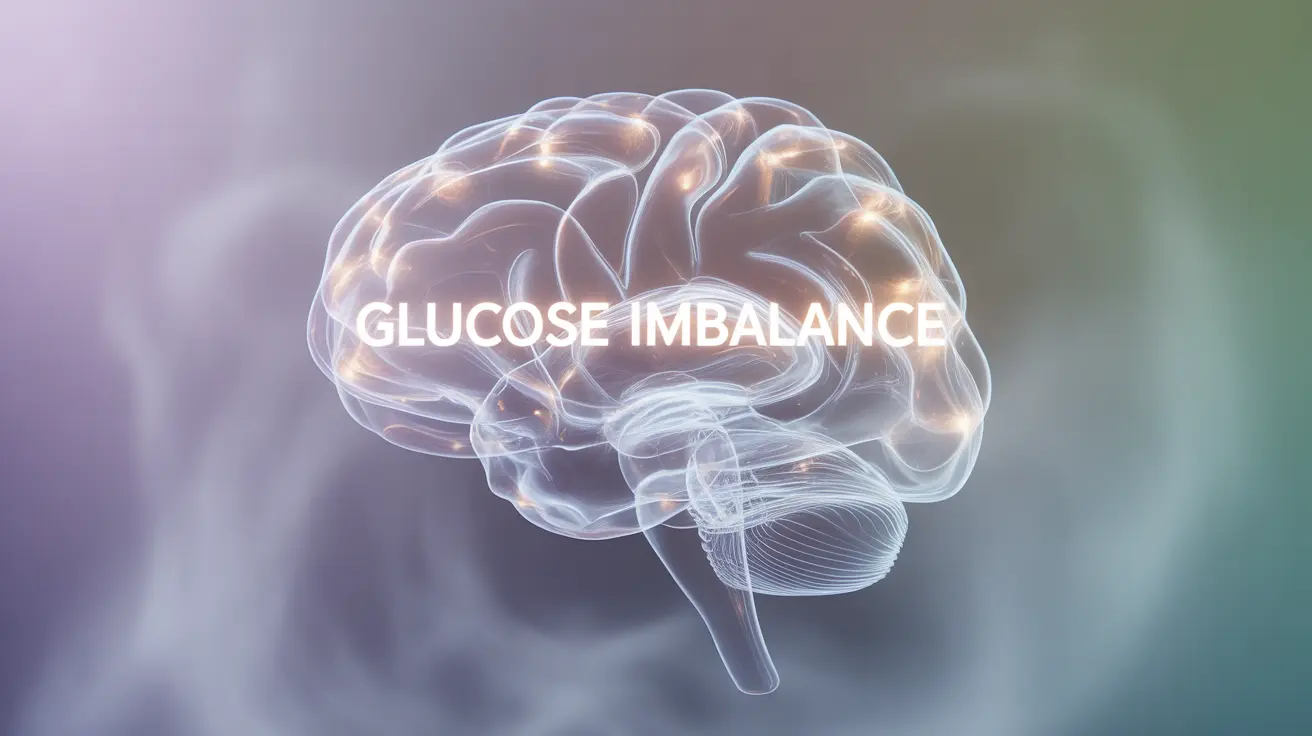Living with diabetes presents various challenges, and one of the less discussed but significant complications is brain fog. This cognitive disruption can affect daily functioning, making it crucial for individuals with diabetes to understand its connection to blood sugar levels and learn effective management strategies.
Brain fog in diabetes manifests as mental confusion, difficulty concentrating, and memory issues. These symptoms can significantly impact quality of life, but understanding the relationship between blood glucose and cognitive function is the first step toward improvement.
The Connection Between Blood Sugar and Brain Function
Blood sugar fluctuations directly affect cognitive performance. When glucose levels are too high (hyperglycemia) or too low (hypoglycemia), the brain doesn't receive the steady energy supply it needs to function optimally. This disruption can lead to temporary cognitive impairment, commonly known as diabetes brain fog.
High blood sugar can cause inflammation and damage to blood vessels in the brain, while low blood sugar deprives the brain of its primary energy source. Both conditions can result in difficulty thinking clearly and maintaining focus.
Common Symptoms of Diabetes-Related Brain Fog
Recognizing the symptoms of diabetes-related brain fog is essential for proper management. Common indicators include:
- Difficulty concentrating or maintaining focus
- Memory problems, especially short-term memory issues
- Slower mental processing speed
- Confusion or disorientation
- Trouble finding the right words
- Decreased decision-making ability
Managing Blood Sugar to Improve Mental Clarity
The primary approach to combating diabetes brain fog is maintaining stable blood sugar levels. This requires consistent monitoring and management strategies:
- Regular blood glucose testing
- Taking medications as prescribed
- Following a balanced meal plan
- Maintaining consistent meal timing
- Staying hydrated
- Getting adequate sleep
Lifestyle Changes That Help Reduce Brain Fog
Beyond blood sugar management, several lifestyle modifications can help improve cognitive function:
Exercise and Physical Activity
Regular physical activity improves insulin sensitivity and promotes better blood flow to the brain. Aim for at least 150 minutes of moderate-intensity exercise per week, including both aerobic activities and strength training.
Dietary Considerations
A brain-healthy diet can help minimize cognitive symptoms. Focus on:
- Omega-3 rich foods like fatty fish
- Whole grains for steady glucose release
- Lean proteins
- Plenty of vegetables and fruits
- Healthy fats from nuts and avocados
Stress Management
Chronic stress can worsen both diabetes management and brain fog. Implement stress-reduction techniques such as meditation, deep breathing exercises, or yoga to help maintain mental clarity.
Long-term Cognitive Health and Diabetes
Research suggests that poorly managed diabetes may increase the risk of cognitive decline and dementia over time. However, maintaining good blood sugar control, along with a healthy lifestyle, can help protect brain health and reduce these risks.
Frequently Asked Questions
- What causes brain fog in people with diabetes and how do blood sugar levels affect it?
Brain fog in diabetes occurs when blood sugar levels become either too high or too low, disrupting the brain's energy supply. High blood sugar can cause inflammation and blood vessel damage, while low blood sugar deprives the brain of necessary fuel, both leading to cognitive difficulties.
- What are the common symptoms of diabetes-related brain fog to watch out for?
Key symptoms include difficulty concentrating, memory problems, slower thinking, confusion, trouble finding words, and decreased decision-making ability. These symptoms often worsen when blood sugar levels are unstable.
- How can managing blood sugar and lifestyle changes help reduce brain fog in diabetes?
Consistent blood sugar monitoring, medication adherence, regular exercise, proper nutrition, and stress management can significantly improve brain fog symptoms. Maintaining stable blood glucose levels is crucial for optimal brain function.
- Can brain fog from diabetes lead to long-term memory problems or dementia?
Uncontrolled diabetes may increase the risk of cognitive decline and dementia over time. However, proper diabetes management, including maintaining good blood sugar control and healthy lifestyle habits, can help protect against long-term cognitive problems.
- What dietary and exercise habits are best for preventing or improving brain fog in diabetes?
A balanced diet rich in whole grains, lean proteins, healthy fats, and vegetables helps stabilize blood sugar. Regular physical activity, including both aerobic exercise and strength training, improves insulin sensitivity and brain function. Aim for 150 minutes of moderate exercise weekly and maintain consistent meal timing.




